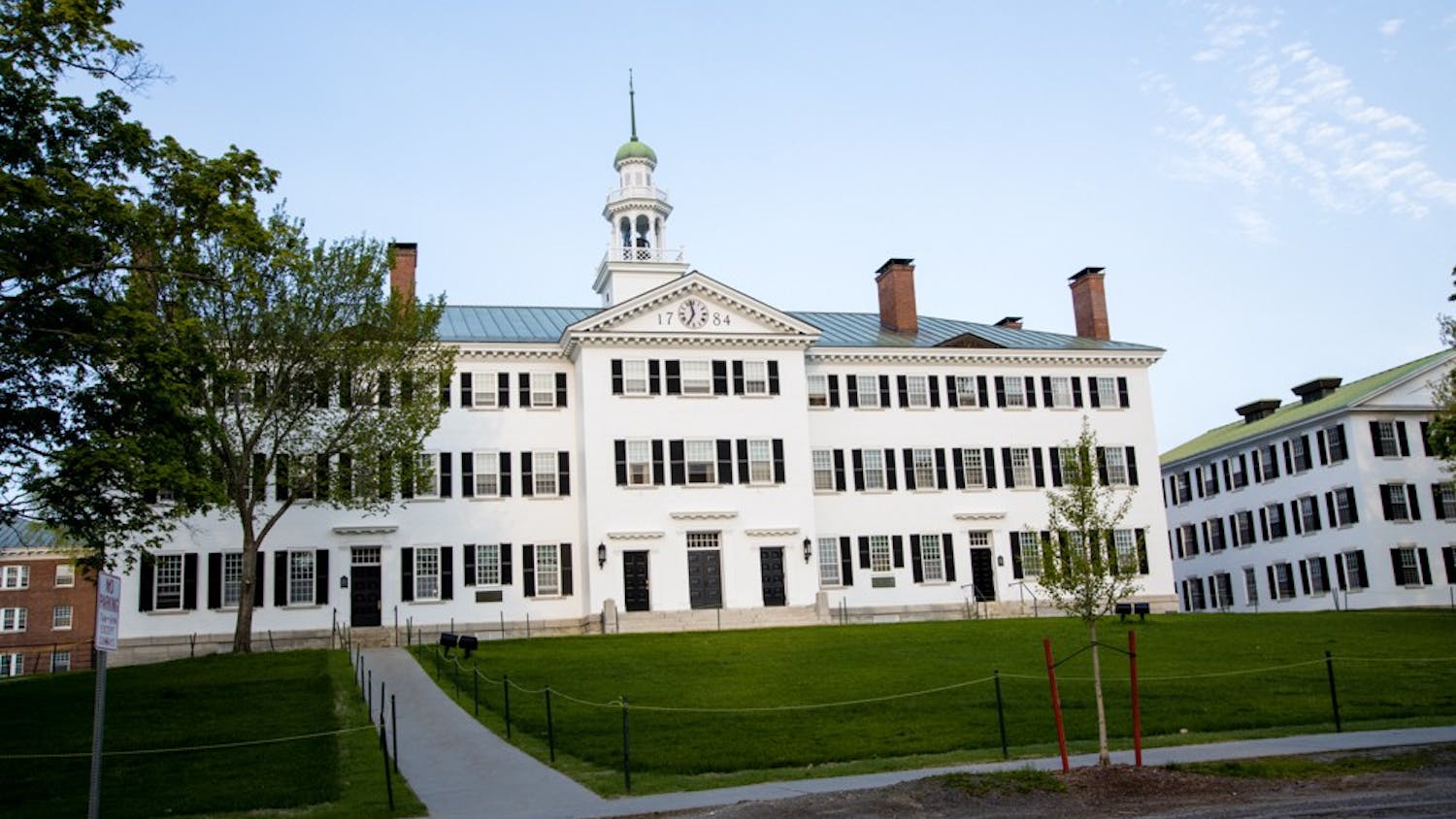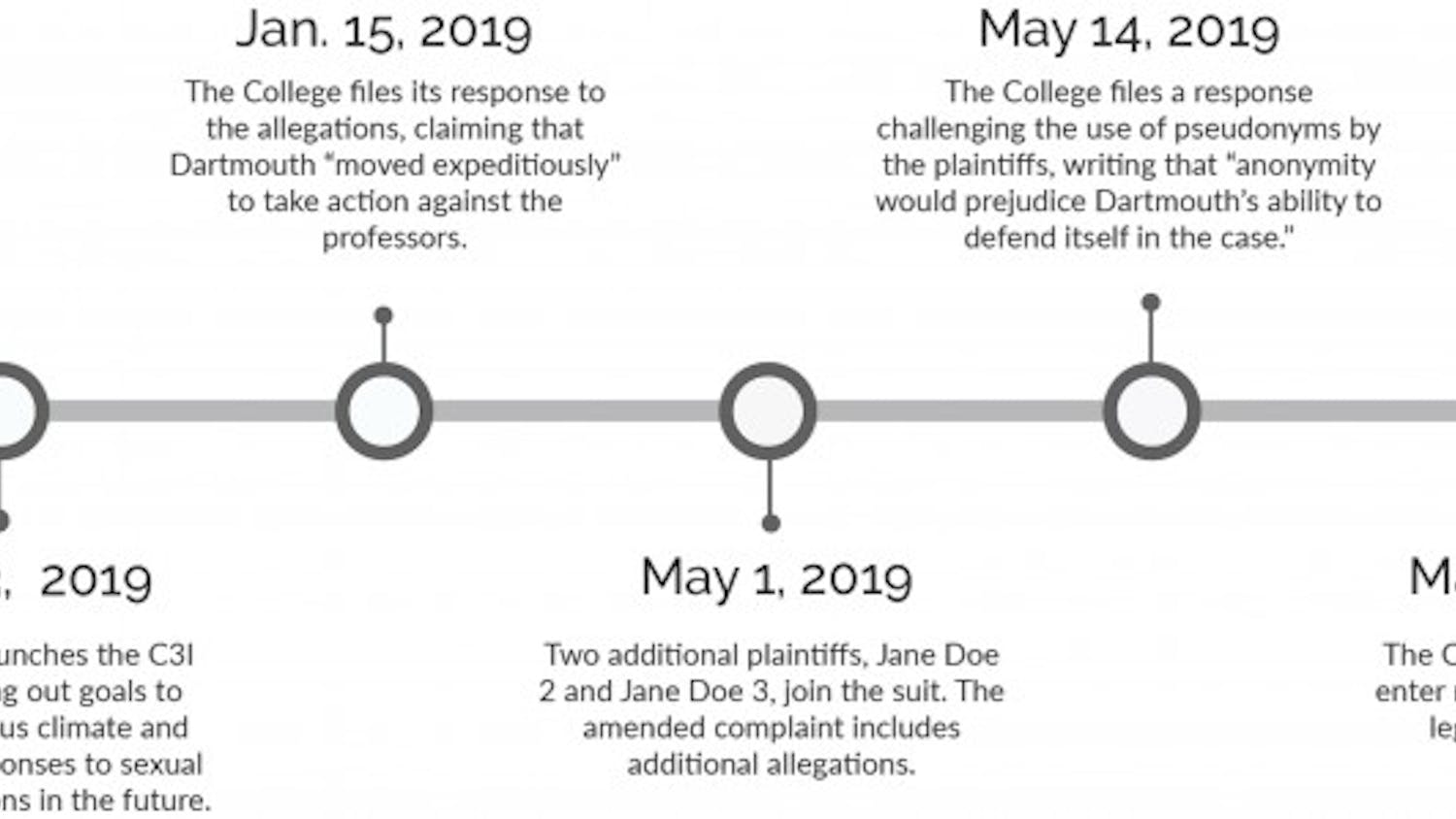Campus Climate and Culture Initiative director Theodosia Cook will leave the College on April 10 to become the chief diversity officer at the University of Colorado. The news of her departure comes less than a year after she took the job in March 2019.
“We are pleased for Theodosia and wish her the very best in her exciting and well-deserved new role in Colorado,” College spokesperson Diana Lawrence wrote in an email statement.
Cook said that she was impressed that one of the four major pillars of CU’s strategic plan focuses on diversity, inclusion, equity and access. Cook said that because this pillar would directly intersect with the work she would be leading, she saw a unique opportunity to fully realize her goals. Additionally, Cook said that appreciated CU’s data-driven approach to diversity and inclusion.
“That was transformative … these types of opportunities don’t come about often,” Cook said. “It was difficult because how do I leave this space, Dartmouth being my home. But a comparable opportunity may not come for another 10 years.”
Cook said that compared to Dartmouth, the University of Colorado system has already taken certain concrete steps that would allow her vision to be efficiently implemented. At Dartmouth, Cook said that she experienced some barriers when advancing some of C3I’s recommendations. She cited a lack of communication and difficulties with transcending the hierarchical nature of the institution, both of which resulted in a tendency of people “to be working with the best intentions, but in complete silo.” Cook said she hopes that moving forward, communication at the College across department levels — and between departments themselves — will be enhanced.
“As C3I director, I have never worked in silo,” Cook said. “I am very proud of my work with colleagues across this institution and having a multifaceted team to bring to the table. I’ve been working on breaking down those power differentials and those barriers. Basically saying, ‘You from this department, you from this department, you both also deserve a place at this table. We should be building things together. I am seeing a cultural shift in that respect.”
C3I was launched in January 2019 to address issues of sexual harassment and sexual misconduct. It was structured on recommendations from a 2018 National Academies of Science, Engineering and Medicine report addressing sexual harassment at institutions such as colleges and universities. The initiative came in the aftermath of a class action lawsuit against the College alleging the poor handling of sexual misconduct by three former psychological and brain sciences professors.
Cook said that she believes her work for C3I will continue because much of her work been collaborative. For example, she said that she created one of her most prominent initiatives — the C3I Ambassador Program — with eight other co-facilitators.
The Ambassador Program is comprised of 17 faculty and staff members who will work in their respective departments to reduce gender bias through gender bias training.
Provost Joseph Helble said that another one of Cook’s achievements during her time as C3I director was her bringing a group from the University of Michigan to campus to initiate leadership development training. He added that Cook has also worked with an external advisory committee to inform them about C3I’s progress.
“Over the first year of the initiative, the emphasis has been on … things like mandatory sexual harassment training for all members of the community, revision of our sexual misconduct policies and procedures, initiating academic department climate reviews, the launch of leadership development programs, the launch of an external advisory committee and expansion of the Title IX office,” Helble said.
One of the distinguishing features of C3I compared to other Dartmouth initiatives is C3I’s focus on helping faculty, staff and students understand the specific harm of gender bias, according to Cook.
“Other initiatives have gender bias as a part of what they do; C3I highlights it,” Cook said. “It also highlights power differentials: director to administrative assistant, professor to student. Again, Dartmouth is very hierarchical, and we want to make sure this isn’t harmful to our constituents.”
According to Cook, another distinguishing quality of C3I is its focus on graduate students, which is “a population that we can sometimes forget about.”
Cook said she also spearheaded changes to graduate student orientation. This past year, students were on-boarded in a new format to ensure that they are aware of the resources available to them, according to Cook.
As she prepares to leave, Cook said that she is hopeful for the future of C3I. According to Helble, the program’s interim director will soon be announced, and a search for a successor will be announced subsequently. Cook is hopeful C3I will be “embedded into the veins” of institutions at Dartmouth.
“All leaders should learn about the harm of gender bias, power differentials and not having an inclusive environment,” Cook said. “I hope we operate as one Dartmouth from the top all the way down, and are not afraid to take steps that have some groups looking like ‘What are you doing?’ Because we know we have a more diverse tomorrow.”



